The book is titled – Aliko Dangote: The biography of the richest black person in the world. And has been accepted for publication by a publishing company based in New York, USA will be released to the market in June, 2012. This is the first and only biography of this exceptional Nigerian, and African. Written by Moshood Ademola Fayemiwo and Margie Marie Neal.
Continue to read more about the book from the publishers and more about the authors…
It is our pleasure to introduce to you the biography of the richest black person in the world, Aliko Mohammad Dangote. We were in Nigeria for fourteen months for field work on this important book. We visited the ancient city of Kano in Northern Nigeria where Aliko was born, Abuja, Lagos, Kaduna, Wudil and other important places tracing the many paths of Aliko Dangote and his successful career as Nigeria’s foremost industrialist and Africa’s richest person.
You will agree with us that the achievement of Mr. Dangote as the richest black person in the world, according to the New York-based Forbes magazine should be celebrated by all Africans and the black race. In the book, we traced the paternal family backgrounds of Mr. Dangote to four generations beginning with Mr. Alhassan Abdullah Dantata to Mr. Sanusi Dantata and Mrs. Mariya Dantata-Dangote and Aliko Dangote. We were able to secure rare photographs from the family album in Kano, including the paternal family of the richest black person in the world. Our narrative included the political circumstances that led to the death of Mr. Mohammad Dangote, Aliko’s father in 1965 and the unrest ignited by the removal of Mr. Mohammadu Sanusi, the Emir of Kano and the grandfather of Dr Lamido Sanusi, the current governor of the Central Bank of Nigeria. We had rare interviews with many Nigerians in Kano on how young Aliko grew up in Kano and his formative years in the ancient city.
Next, we followed Aliko Dangote’s journey to Lagos as a 15-year old young man under the business wing of the late Mr. Usman Amaka Dantata, Aliko’s uncle born in 1950 and the last born of his maternal grandfather, who was the younger brother of Aliko’s mother. We revealed how Aliko Dangote had his first break in the business world during the celebration of Festac’ 77 and the first business relationship with then 35-year old Lt-Gen Olusegun Obasanjo and the late Major-General Shehu Musa Yar’Adua. We unearthed the secret of Mr. Dagote’s wealth unknown to millions of people and his contribution to the economic development of Nigeria and Africa. In our book, we present the “complete” Aliko Mohammad Dangote and his private life; the actual number of children he has, his wives and the many women in the life of the richest black person in the world. For the first time, we revealed the “secrets” of the business success of Aliko Mohammad Dangote and draw certain commonalities with other billionaires of the world. Our searchlight did not escape the philanthropic activities of Nigeria’s private employer of labor as well, including his political cum business connections with all Nigerian leaders, beginning with Mr. Olusegun Obasanjo, Shehu Shagari, the late Umaru Musa Yar’Adua and the current Nigerian president, Mr. Goodluck Jonathan.
ADVANCE PRAISE FOR THE BOOK ALIKO MOHAMMAD DANGOTE THE BIOGRAPHY OF THE RICHEST BLACK PERSON IN THE WORLD
“Like any other denouements of memoir books, the last chapter is the highlight. As a reader, the denouement always takes the heavier weight of a literary merit for memoirs and autobiographies. Also the book provided a comprehensive historical account of main events in Nigeria which made Mr. Dangote of what he is today. Excellent job! You managed to lead the chapters of seeing the different sides of the world of business to be fascinating yet a serious path toward success— Ms Lou Fuentes, Publishing Consultant, Trafford Publishing Company, Bloomington, Indiana, USA.
———–.
“We here at the Northern Illinois University, African Students Association would be more than grateful to have you come and present he book; “Aliko Mohammad Dangote, The Biography of the Richest Black Person in the World,” to us during our association’s week…”— Mr. Michael Agyekum, President, African Students Association (2011-2012), Northern Illinois University, Dekalb, Illinois, USA.
———–.
“Congratulations, we have completed our review of your work and you have been accepted as our approved authors—Mr. Tom Wallace, Acquisitions Manager, AEG Publishing Group, Houston, TX, USA.
———–.
“A good book based on the preview we have just seen. Great job!–Ms. Shelley Sapyta Bookmasters, Inc. 30 Amberwood Parkway Ashland, OH, USA.
———–.
“The book on the richest black man in the world will be interesting. I am looking forward to someday reading the actual book… Warmest regards”—Ms Lorene A. Roberson, M.A. Media and Alumni Relations Coordinator, Oklahoma State University, Stillwater, OK, USA.
———–.
“I am very happy to hear that you would like to share Mr. Dangote’s story with our community as well as assist us in accumulating funds to support our future events. … ACA would love to have you as a sponsor. .. We would include an ad for the book in our program and we could even give you an allocated time to speak in front of the crowd and promote the book yourself. Thank you, for reaching out to ACA. I hope we can work together…”Ms Chinwe Echeazu, President, African Cultural Association, University of Illinois-Urbana Champaign, Urbana, IL USA.
———-.
“Dear Dr Fayemiwo, Thank you very much for considering Yankasa Association as a possible site for the signing of your book. Certainly Mr. Dangote needs to be celebrated by all Africans for his accomplishments…”—Mr. Mohammed Mardah, President Yankasa Association of New York, Inc Bronx, NY, USA.
ABOUT THE AUTHORS
MOSHOOD ADEMOLA FAYEMIWO is a former publisher and editor-in-chief of popular Razor magazine and Evening News in Nigeria between 1992 and 1998. A former reporter with the defunct National Concord newspapers; senior reporter, The Herald newspaper, Ilorin; staff writer, with the defunct New breed magazine; staff writer, Sunday Champion newspapers; special project staff writer, the defunct African Guardian; and senior special project writer/reporter, the defunct Times Week (Daily Times).
He is an alumnus of the University of Lagos, Nigeria (BA-Education); University of South Florida, and State University of New York (SUNY)-Albany where he earned an MA in Mass Communication, MS in Information Science and Combined MA Degree in African-American History & English Studies respectively His PhD is in Public Administration and Policy. He is the author of Who’s Who of Africans in USA and three other published books in the United States. He was contributing editor for The Informed Constituent newspaper in Albany, New York. He has written for newspapers in Tampa, St Petersburg in Florida, New York and has authored academic articles for scholarly journals in the United States and the UK.
He is a member of several professional organizations. His latest work is co-author of the biography of President Goodluck Jonathan of Nigeria. He is a writer, author, commentator on local and international issues and a businessman. He is the managing director of Alternative Lifestyle Communication, Inc, and lives in Chicago in the United States of America.
MARGIE MARIE NEAL is a former university professor, an education consultant, and a reading coach/classroom teacher with the Chicago Area School System in Illinois, United States. A graduate of State University of New York (SUNY)-Brockport, where she earned her BS in History, MS in Reading from the Chicago State University and the University of Illinois at Urbana-Champaign where she earned her Ed.D –Doctorate in Educational Leadership. She was formerly, president, Chicago Area Reading Association and committee member, International Reading Association, United States. She is a member of several professional organizations on reading and educational development in Chicago, USA. She is the president of Alternative Lifestyle Communication Inc., Chicago, and lives in Chicago in the United States of America.
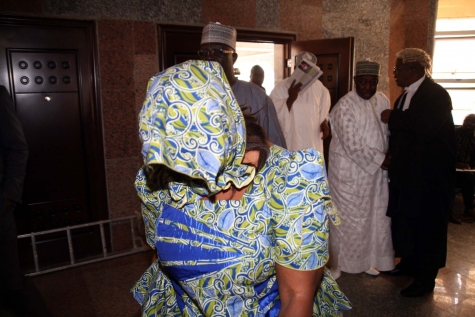
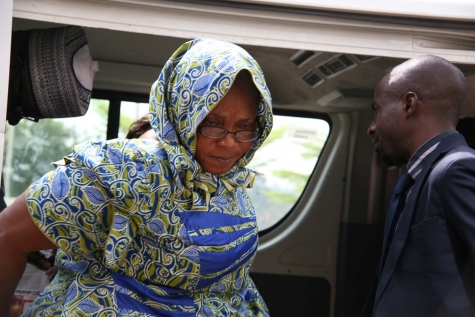

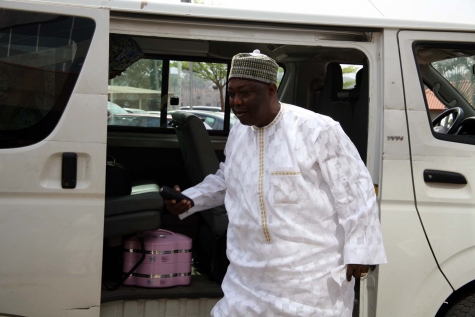

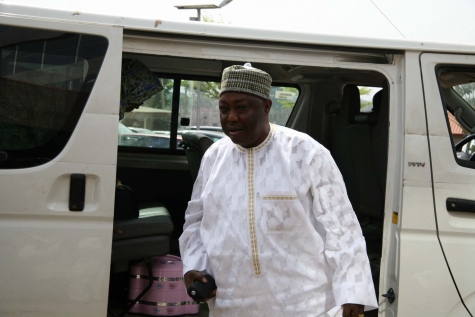
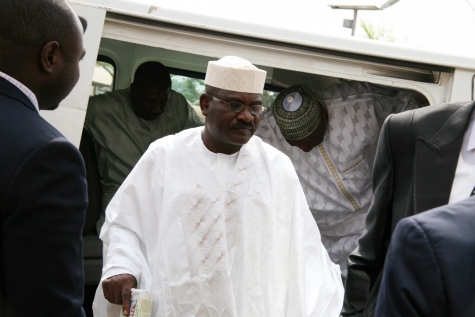
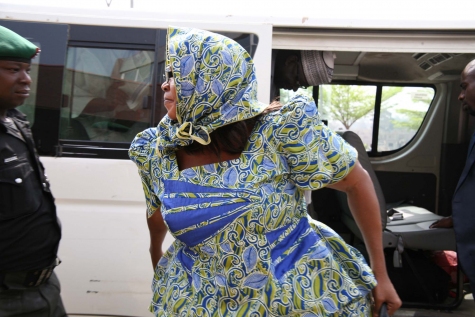
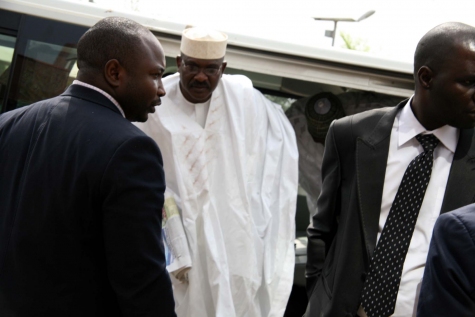








 Culled from Premiuim Times.
Culled from Premiuim Times.

 Bamanga Tukur
Bamanga Tukur 
